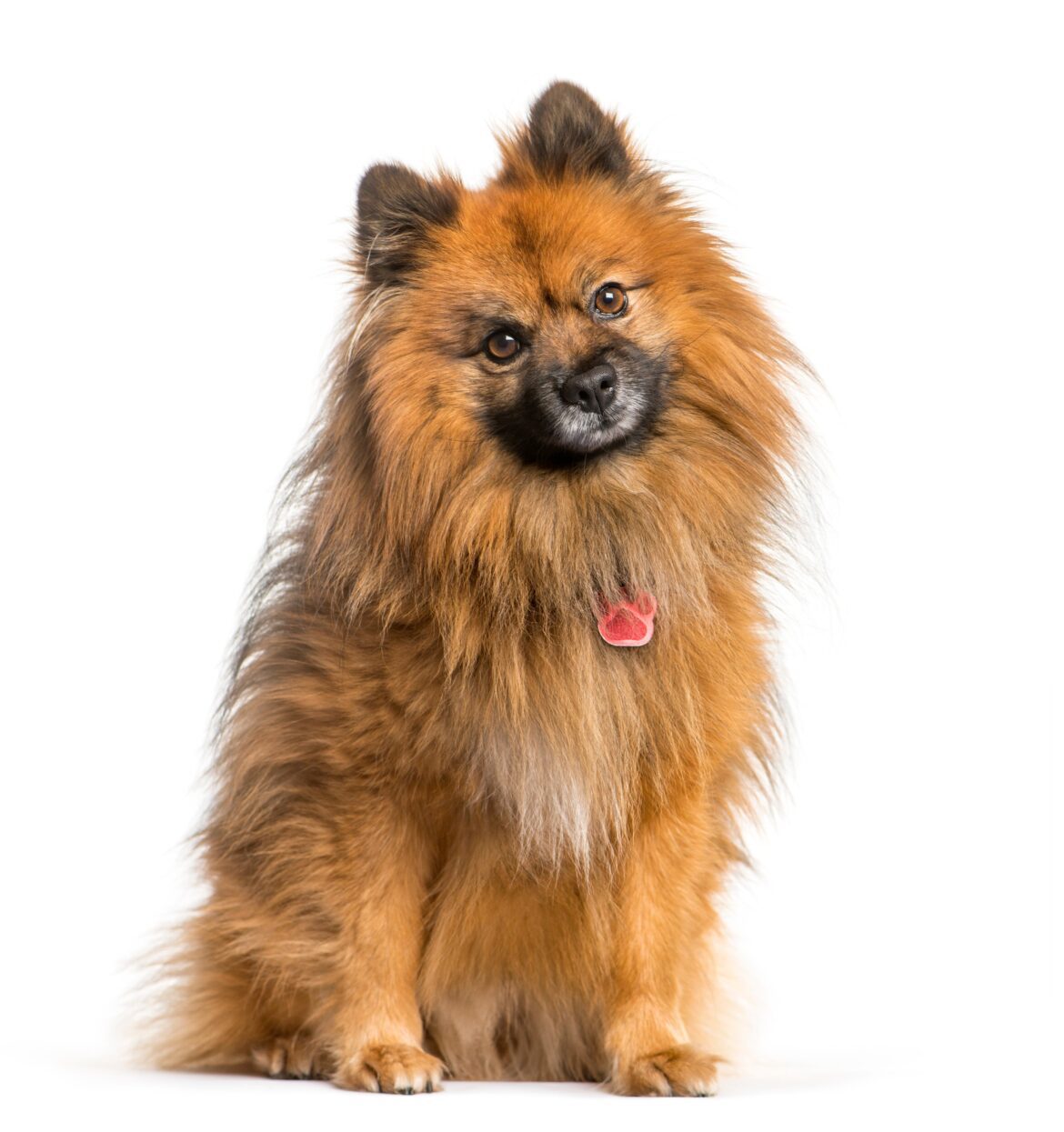Introduction
The German Spitz is a charming and lively dog breed that has been a beloved companion to many for centuries. With its fluffy coat, pointed ears, and adorable face, it’s no surprise that this breed is a popular choice for dog lovers around the world.
However, if you’re considering bringing a German Spitz into your home, it’s important to understand the unique characteristics, personality traits, and care requirements of this breed.
In this ultimate guide to the German Spitz dog breed, we’ll explore everything you need to know about this beloved breed, from its history and physical characteristics to its grooming and nutrition needs. We’ll also explore into the German Spitz’s personality and behavior and offer tips for training and socializing your dog for a happy and healthy life.
Whether you’re a seasoned dog owner or considering bringing a new furry friend into your life, this guide will provide you with the knowledge and insights you need to care for and enjoy your German Spitz to the fullest.
Origin and History of German Spitz
This breed has a long and rich history, dating back to at least the 15th century. The breed was developed in Germany and was originally used as a watchdog and for hunting and herding.
Over time, the breed was divided into several varieties, including the Giant, Standard, Miniature, and Toy German Spitz. Today, the breed is recognized by many kennel clubs, including the American Kennel Club (AKC), the United Kennel Club (UKC), and the Fédération Cynologique Internationale (FCI).
Appearance
This breed includes small to medium-sized dog with a height of between 9 to 12 inches and a weight of between 20 to 35 pounds. It has a thick, double coat can come in various colors, including white, black, brown, cream, and orange. The breed’s face is fox-like, with pointed ears and a black nose. The breed’s tail is curled over its back, giving it a distinctive appearance.
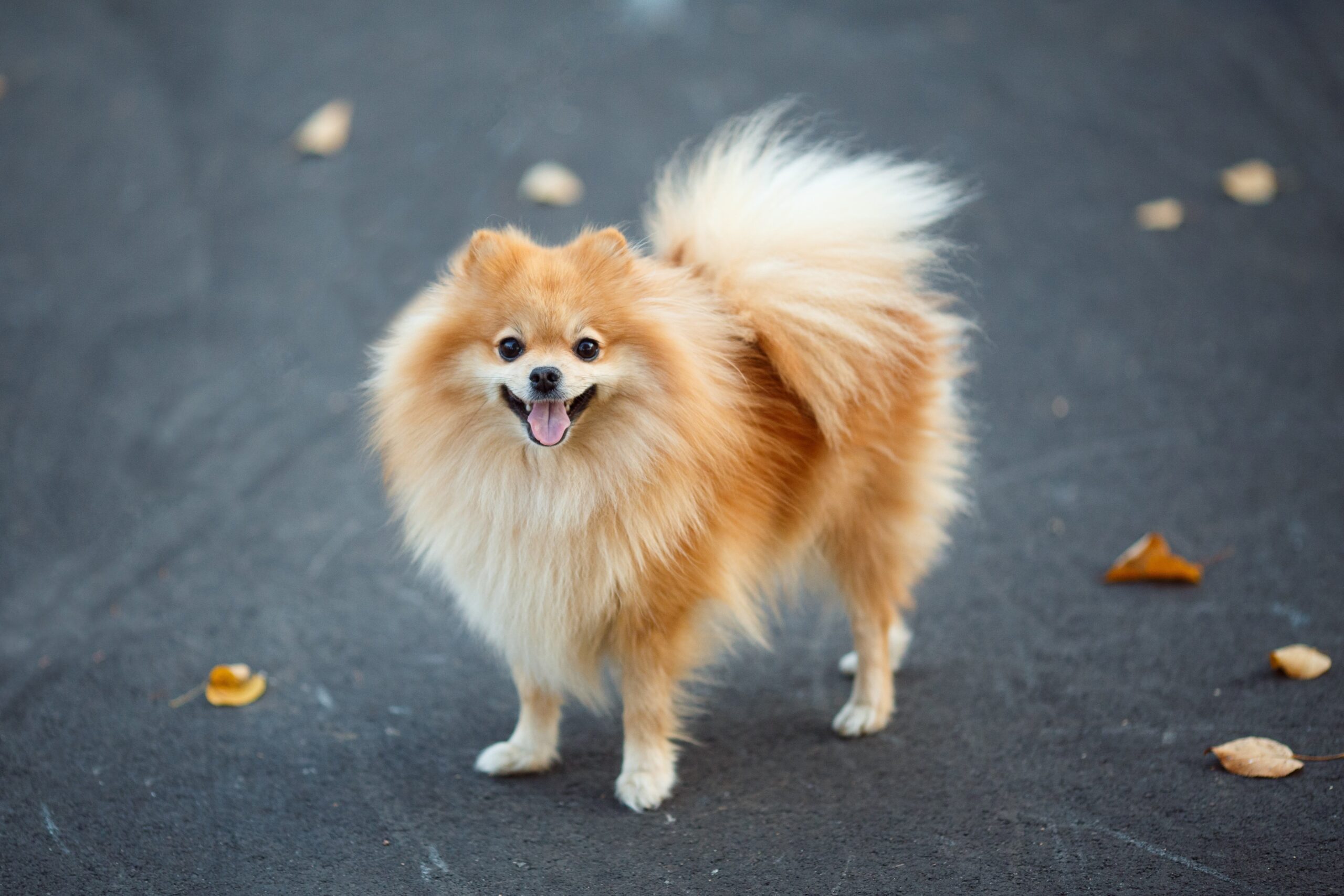
The German Spitz’s Unique Personality Traits: What to Expect”
The German Spitz dog breed is known for its distinctive fox-like appearance, fluffy double coat, and high energy level. But what about the breed’s personality? We will explore what you can expect from German Spitz temperament and behavior.
High Energy Level
One of the most notable personality traits of this Spitz is its high energy level. This breed was originally developed for hunting and herding, and it has a natural instinct to be active and on the go.
As a result, the Spitz requires plenty of exercises and mental stimulation to stay happy and healthy. This can include walks, runs, playtime, and training sessions. Without enough exercise and activity, the German Spitz may become bored and restless, which can lead to destructive behavior.
Intelligence
The German Spitz is a highly intelligent breed that loves to learn and solve problems. This makes them relatively easy to train, as long as you use positive reinforcement methods and are consistent in your approach. The breed is also known for its problem-solving abilities and can often figure out how to get what it wants. As an owner, you will need to be patient and persistent with training, and provide plenty of mental stimulation to keep your German Spitz engaged.
Loyalty
The German Spitz is a loyal breed that loves being around its family. It is not uncommon for a German Spitz to form a strong bond with one particular person, although it will also be friendly and affectionate with other family members. The breed protects its family and may bark or growl at strangers or unfamiliar animals. However, with proper socialization, the German Spitz can learn to accept new people and pets more.
Independence
Despite its loyalty, the German Spitz is also an independent breed that likes to do things its way. This can sometimes make training more challenging, as the breed may be stubborn or uninterested in following your commands. However, the German Spitz can be trained to follow rules and boundaries with the right approach. It is important to provide positive reinforcement, clear expectations, and avoid harsh or punitive training methods.
Affectionate
The German Spitz is a very affectionate breed that loves to be near its family. It is not uncommon for a German Spitz to want to snuggle on the couch or sleep in bed with its owner. The breed is also known for its high-pitched bark, which can signify excitement or affection. The German Spitz may be a good choice if you are looking for a breed that will show you lots of love and attention.
Training and Exercise
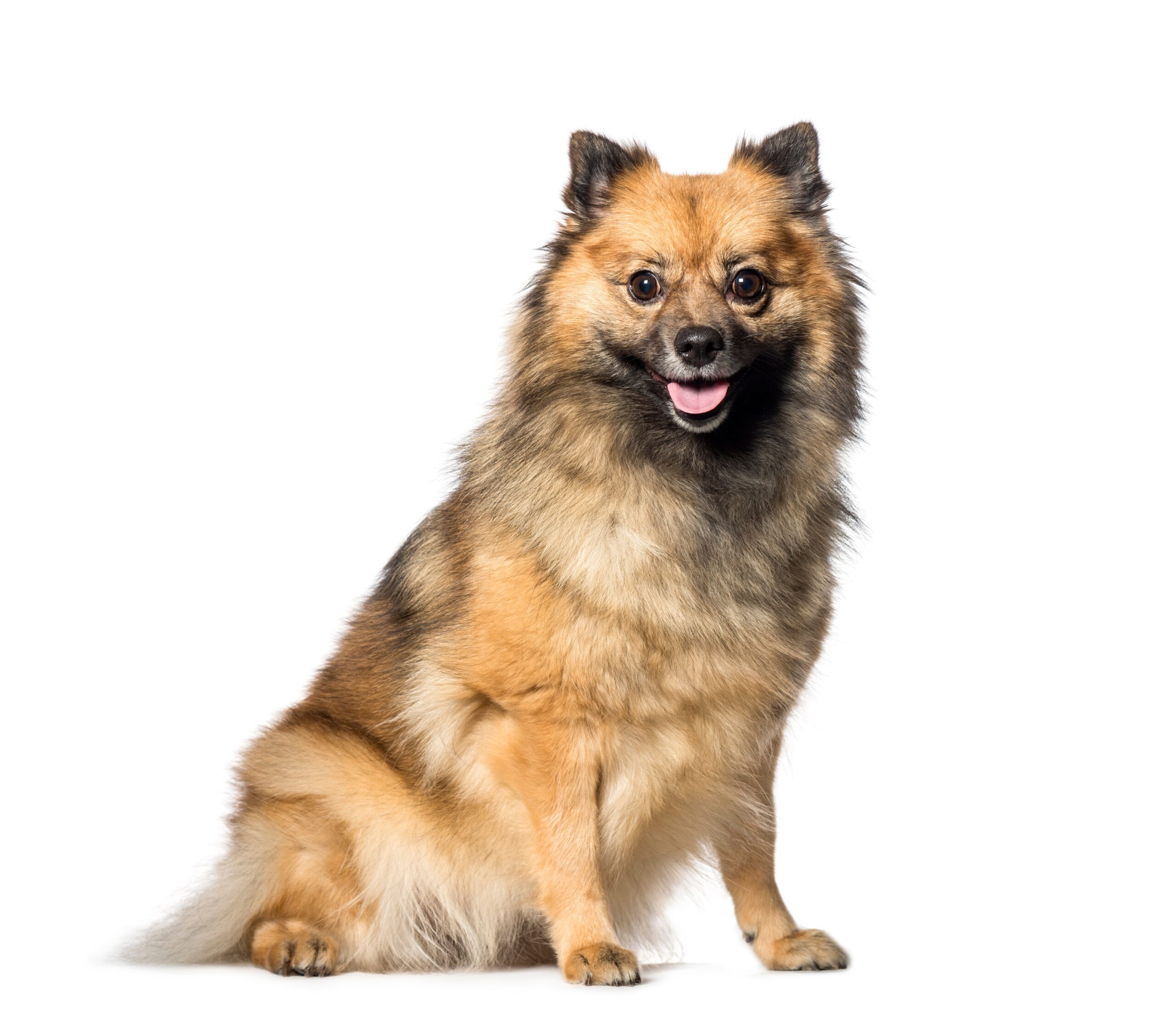
The German Spitz is a highly intelligent and active dog breed that can be a wonderful companion for the right owner. However, without proper training and socialization, the breed can become difficult to manage and may display undesirable behaviors. Here are some training tips for the German Spitz to help you raise a well-behaved and obedient dog.
Start Early
The key to successful training is to start early. It is important to begin training your German Spitz as soon as possible, preferably when it is still a puppy. This will help establish good habits and behaviors early on and make training easier as your dog ages.
Use Positive Reinforcement
The German Spitz responds well to positive reinforcement training, which involves rewarding good behavior with treats, praise, or affection. This approach is more effective than punishment or scolding, which can damage the bond between you and your dog. It is important to be consistent in your rewards and to use them immediately after your dog displays the desired behavior.
Be Firm and Consistent
While positive reinforcement is important, being firm and consistent in your training is also necessary. This means setting clear rules and boundaries and enforcing them consistently. It is important to be patient and persistent and avoid giving your dog mixed messages.
Socialize Your Dog
The German Spitz can be wary of strangers and may display aggression towards other dogs or animals. To prevent this, it is important to socialize with your dog from an early age. This means exposing your dog to different people, animals, and environments and rewarding good behavior. Socialization will help your German Spitz become more confident and well-behaved in various situations.

Provide Plenty of Exercises and Mental Stimulation
The German Spitz is an active breed that requires plenty of exercises and mental stimulation to stay healthy and happy. This can include daily walks, runs, playtime, interactive toys, and puzzles. Without enough exercise and stimulation, the German Spitz may become bored and restless, which can lead to destructive behavior.
Address Problem Behaviors Early
If you notice your German Spitz displaying problem behaviors, such as barking excessively or chewing on furniture, it is important to address them early. This means identifying the root cause of the behavior and providing an alternative behavior that is more desirable. It is also important to avoid reinforcing the problem behavior with attention or rewards.
Grooming Needs of German Spitz Dogs
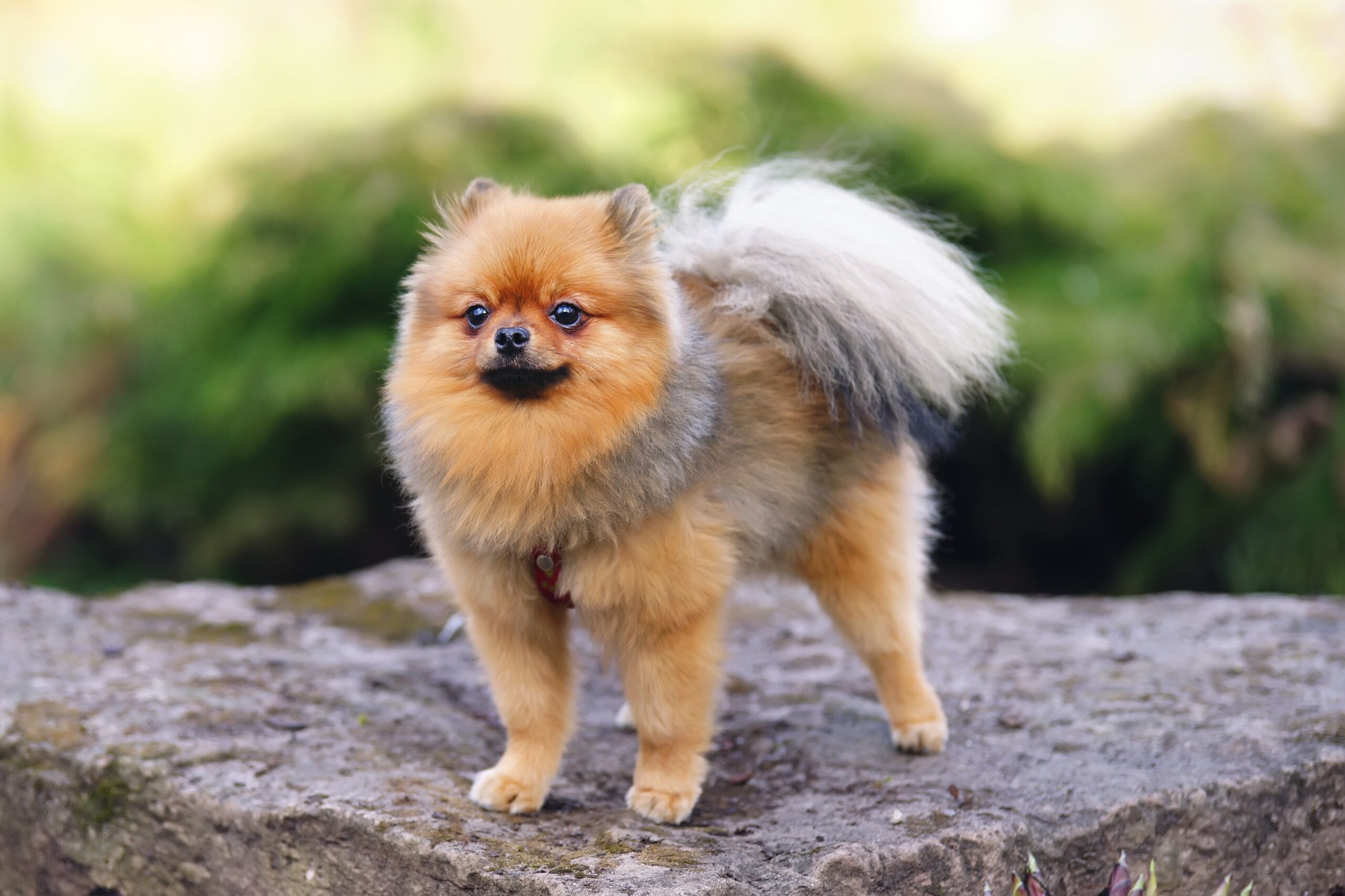
The German Spitz breed is known for its beautiful, fluffy coat that requires regular grooming to maintain its health and appearance. Here are some tips for keeping your German Spitz looking and feeling its best:
Brushing
Regular brushing is key to preventing matting and tangling of the German Spitz’s long, dense fur. Aim to brush your dog at least once a week, but more frequent brushing may be necessary during shedding seasons. Use a slicker brush or comb to gently work through any tangles, and check behind the ears and under the legs, where matting can occur.
Bathing
While the German Spitz does not require frequent bathing, keeping their coat clean and free of dirt and debris is important. Aim to bathe your dog every 2-3 months or as needed. Be sure to use a dog-specific shampoo and conditioner, and avoid getting water or soap in their eyes or ears.
Nail trimming
Regular nail trimming is important for the health and comfort of your German Spitz. Overgrown nails can cause pain and discomfort and contribute to joint problems. Aim to trim your dog’s nails every 1-2 months or as needed. Be sure to use sharp, dog-specific nail clippers and avoid cutting into the quick (the pink area inside the nail that contains blood vessels).
Ear cleaning
The German Spitz fluffy ears can trap dirt and moisture, making them prone to infection. Check your dog’s ears regularly for signs of redness, discharge, or odor, and clean them as needed. Use a dog-specific ear cleaner and a soft cloth or cotton ball to gently wipe the inside of the ear, being careful not to insert anything into the ear canal.
By following these grooming tips, you can help keep your German Spitz looking and feeling its best. Additionally, regular grooming can be a great bonding experience for you and your dog and can help prevent potential health issues.
Health Concerns in the German Spitz Breed: What Every Owner Should Know
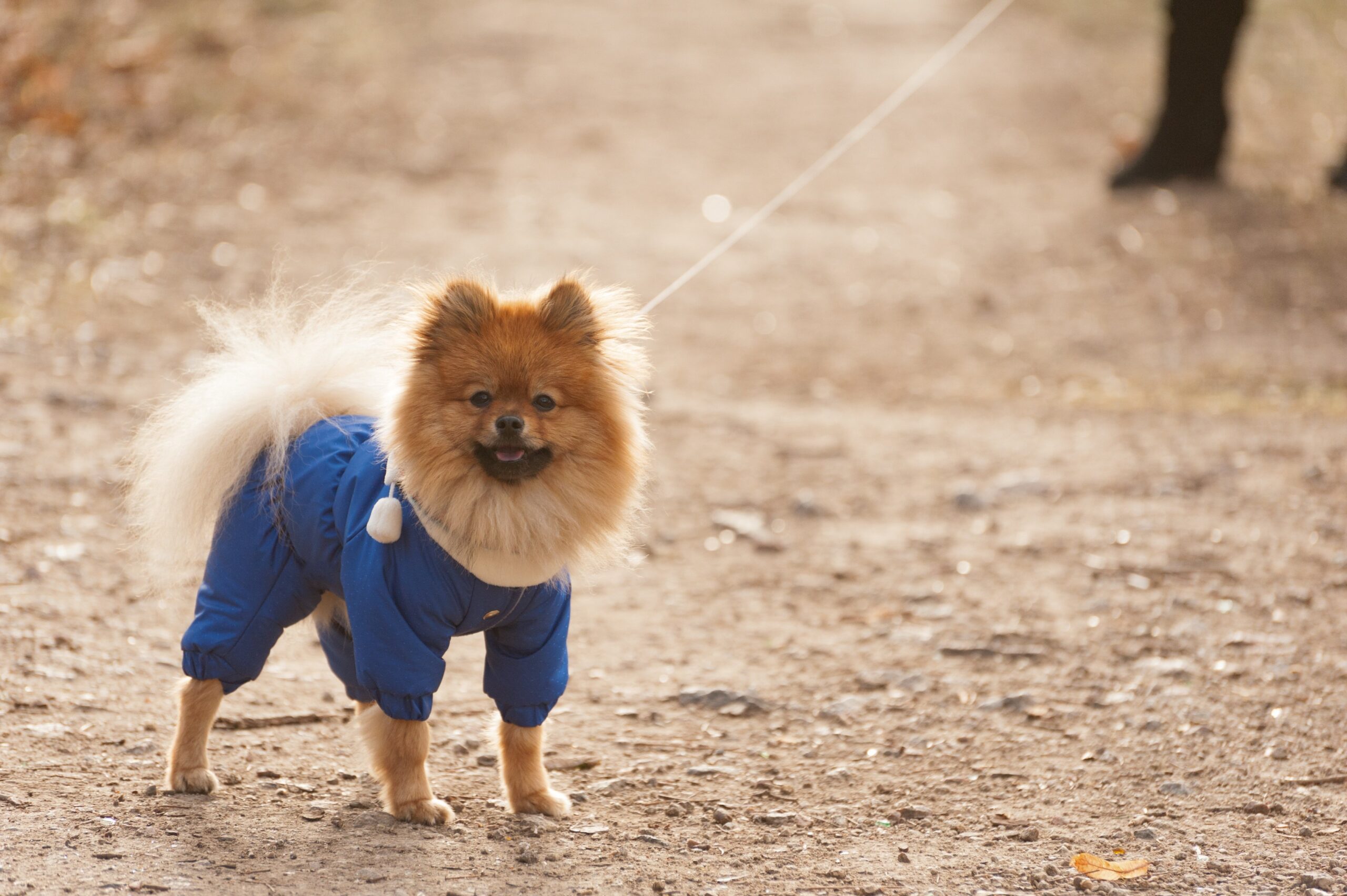
The German Spitz is a generally healthy breed with a lifespan of 12-16 years. However, like all breeds, they can be prone to certain health concerns that every owner should be aware of.
We will discuss some of the most common health concerns in the German Spitz and how to keep your furry friend healthy.
Hip Dysplasia
Hip dysplasia is a genetic condition in which the hip joint does not develop properly, causing pain, lameness, and arthritis. While the German Spitz is not one of the breeds most commonly affected by hip dysplasia, it can still occur. To prevent hip dysplasia, obtaining your puppy from a reputable breeder who performs hip screening tests on their breeding dogs is important.
Patellar Luxation
Patellar luxation is a condition in which the kneecap moves out of its normal position, causing lameness and discomfort. It is common in small dog breeds, like German Spitz. Patellar luxation can be caused by genetics or trauma. If your German Spitz shows any signs of limping or pain in their back legs, it is important to take them to the vet for an evaluation.
Progressive Retinal Atrophy
Progressive retinal atrophy (PRA) is a group of genetic eye diseases that can lead to blindness. PRA can be diagnosed with a genetic test, which should be performed on breeding dogs to prevent the transmission of the disease to their offspring.
Epilepsy
Epilepsy is a neurological disorder that can cause seizures in dogs. While there is no cure for epilepsy, it can be managed with medication and a healthy lifestyle. If your German Spitz shows any signs of seizures, it is important to take them to the vet for an evaluation.
Dental Problems
Dental problems are common in German Spitz. Without proper dental care, your dog can develop plaque, tartar, gum disease, and tooth loss. To prevent dental problems, it is important to brush your dog’s teeth regularly, provide dental chews or toys, and take them to the vet for regular dental cleanings.
Obesity
Obesity is a common health concern in many dog breeds, including the German Spitz. Overweight dogs are at risk of developing many health problems, including joint problems, heart disease, and diabetes. To prevent obesity, it is important to feed your companion a healthy diet, provide regular exercise, and monitor their weight.
By being aware of these health concerns, you can take steps to keep your German Spitz healthy and happy. Regular veterinary check-ups, a healthy diet, regular exercise, and good dental care can all help prevent health problems in your German Spitz. With proper care, your German Spitz can enjoy a long and healthy life by your side.
Feeding and Nutrition
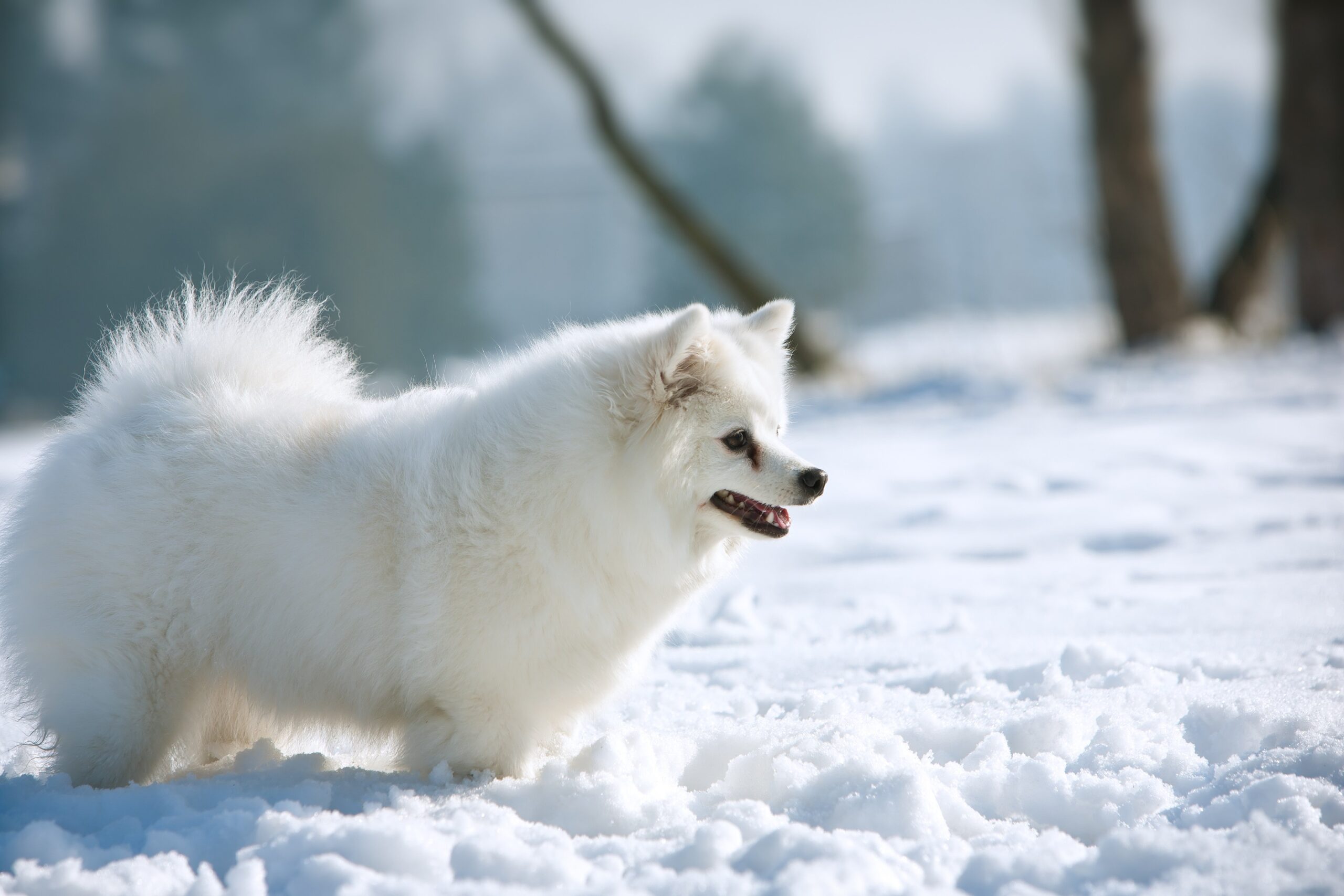
The German Spitz is a small to medium-sized breed that requires a well-balanced diet to maintain its health and energy levels. Here are some tips for feeding your dog:
Choose a high-quality dog food
Look for dog food that is specifically formulated for small or medium breeds and is made with high-quality ingredients, including meat as first ingredient. Avoid dog foods that contain fillers or by-products.
Feed on a schedule
Divide your dog’s daily food allowance into two or three meals per day rather than feeding them one large meal. This can help prevent digestive upset and maintain stable blood sugar levels.
Monitor portion sizes
It is important to feed Spitz-type dogs an appropriate amount of food to maintain a healthy weight. Check the recommended portion sizes on your dog food packaging, and adjust as needed based on your dog’s activity level and overall health.
Provide fresh water
Access to clean, fresh water is essential for your dog’s health and hydration. Make sure your dog has access to water at all times, and clean and refill their water bowl regularly.
Avoid table scraps
While it can be tempting to share your food with your dog, it is important to avoid feeding them table scraps or human food. This can lead to digestive upset or even serious health problems.
Monitor for food allergies
Some Spitz dogs may be prone to food allergies, which can manifest in symptoms such as skin irritation, itching, and gastrointestinal upset. If you suspect that your dog may have a food allergy, talk to your vet about options for identifying and managing the allergy.
By following these feeding and nutrition tips, you can help keep your furry friend healthy and happy for years to come. Additionally, it is important to consult with your vet about any specific nutritional needs or health concerns for your individual dog.
Living Conditions of German Spitz
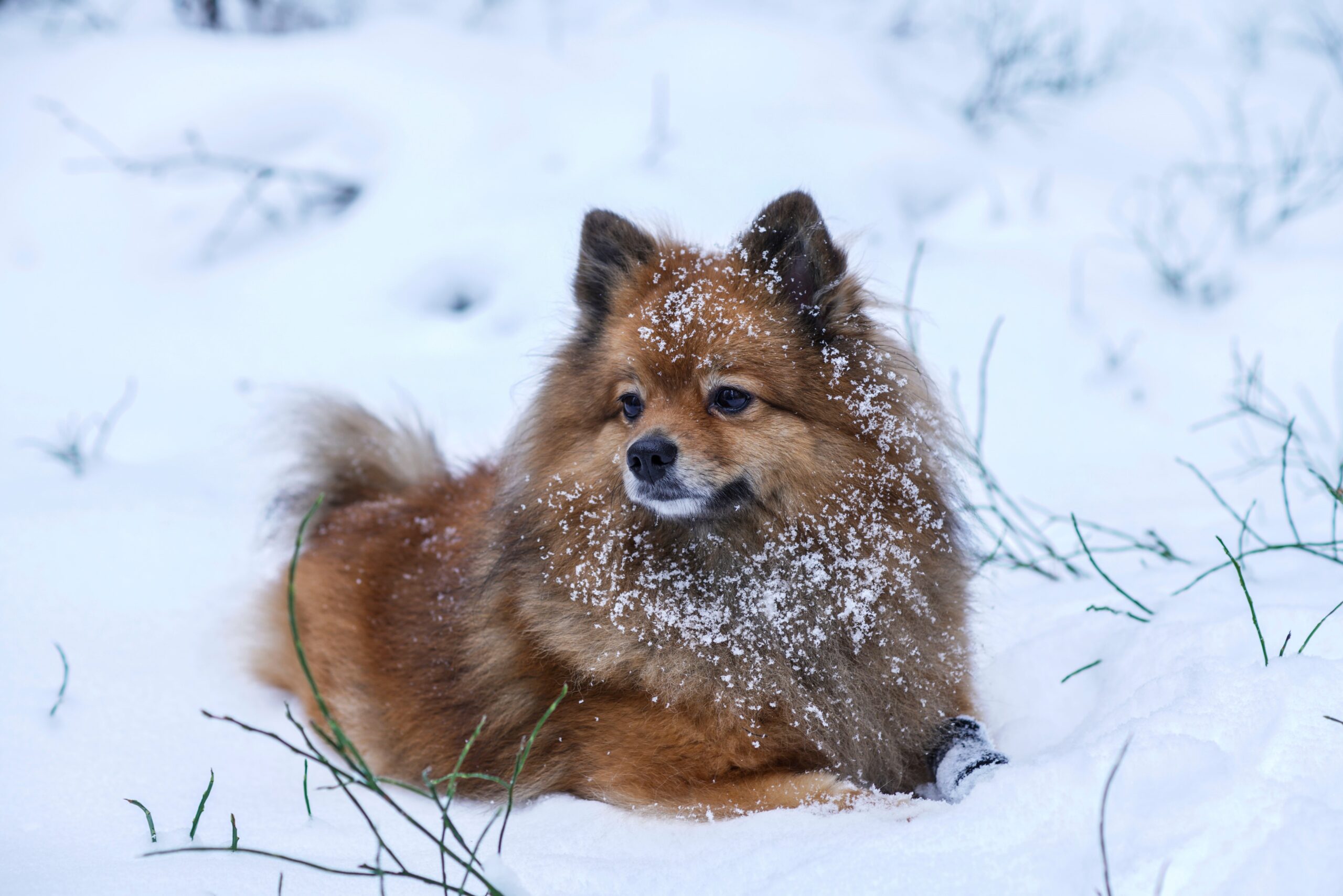
This dog breed does well in both urban and rural settings as long as it has enough space and activity to keep it mentally and physically stimulated. The breed is adaptable and can live in apartments or houses with yards as long as it receives enough exercise and attention.
Popularity and Availability
The German Spitz is a relatively rare breed in many parts of the world, but it has gained popularity in recent years. The breed is recognized by several kennel clubs, and there are many breeders and rescue organizations dedicated to the breed. However, it is important to research breeders and rescue organizations carefully to ensure that you are getting a healthy, well-socialized dog.
In a Nutshell
The German Spitz dog breed is a unique and fascinating breed that has a long and rich history. Its distinctive appearance, high energy level, and intelligence make it a popular choice for many dog owners.
However, the breed also requires proper training, grooming, and socialization to thrive. If you are considering adding a German Spitz to your family, it is important to do your research and choose a reputable breeder or rescue organization. With the right care and attention, the German Spitz can be a wonderful and loyal companion for many years to come.
